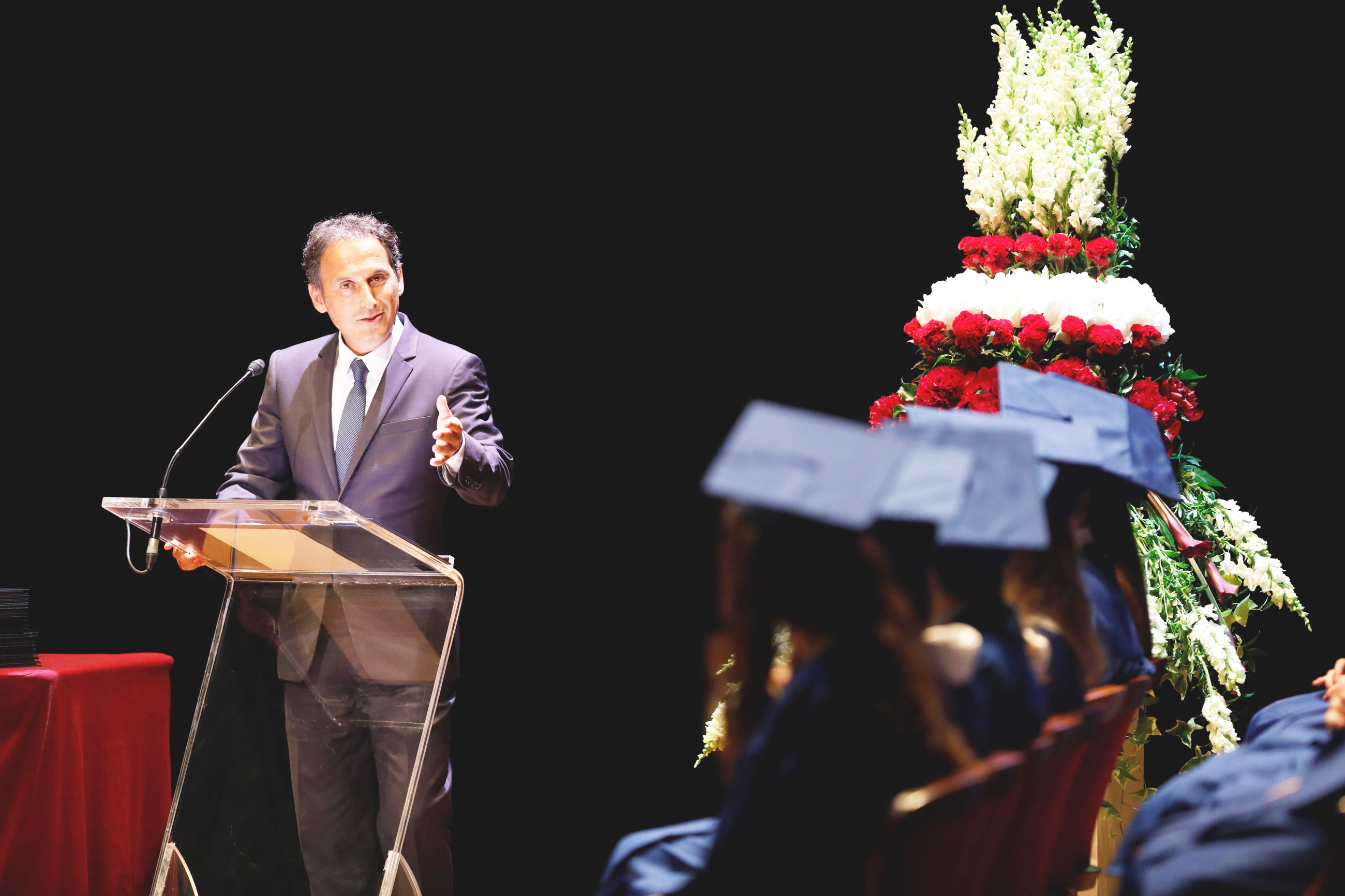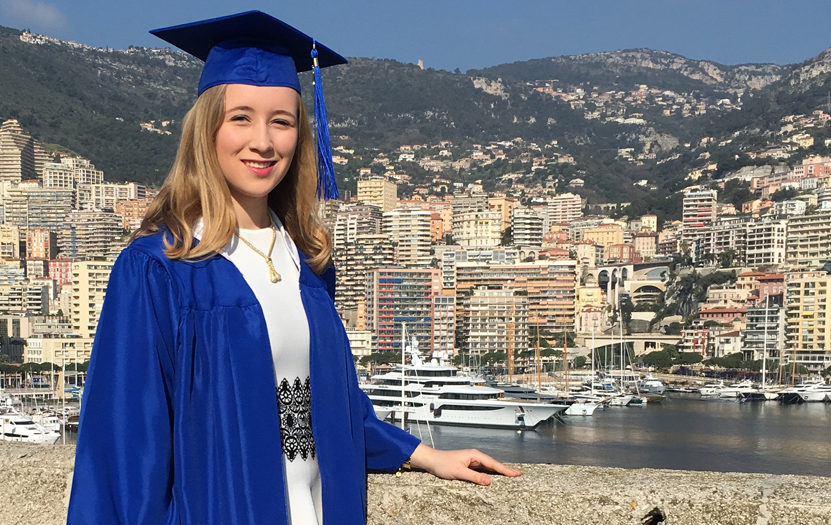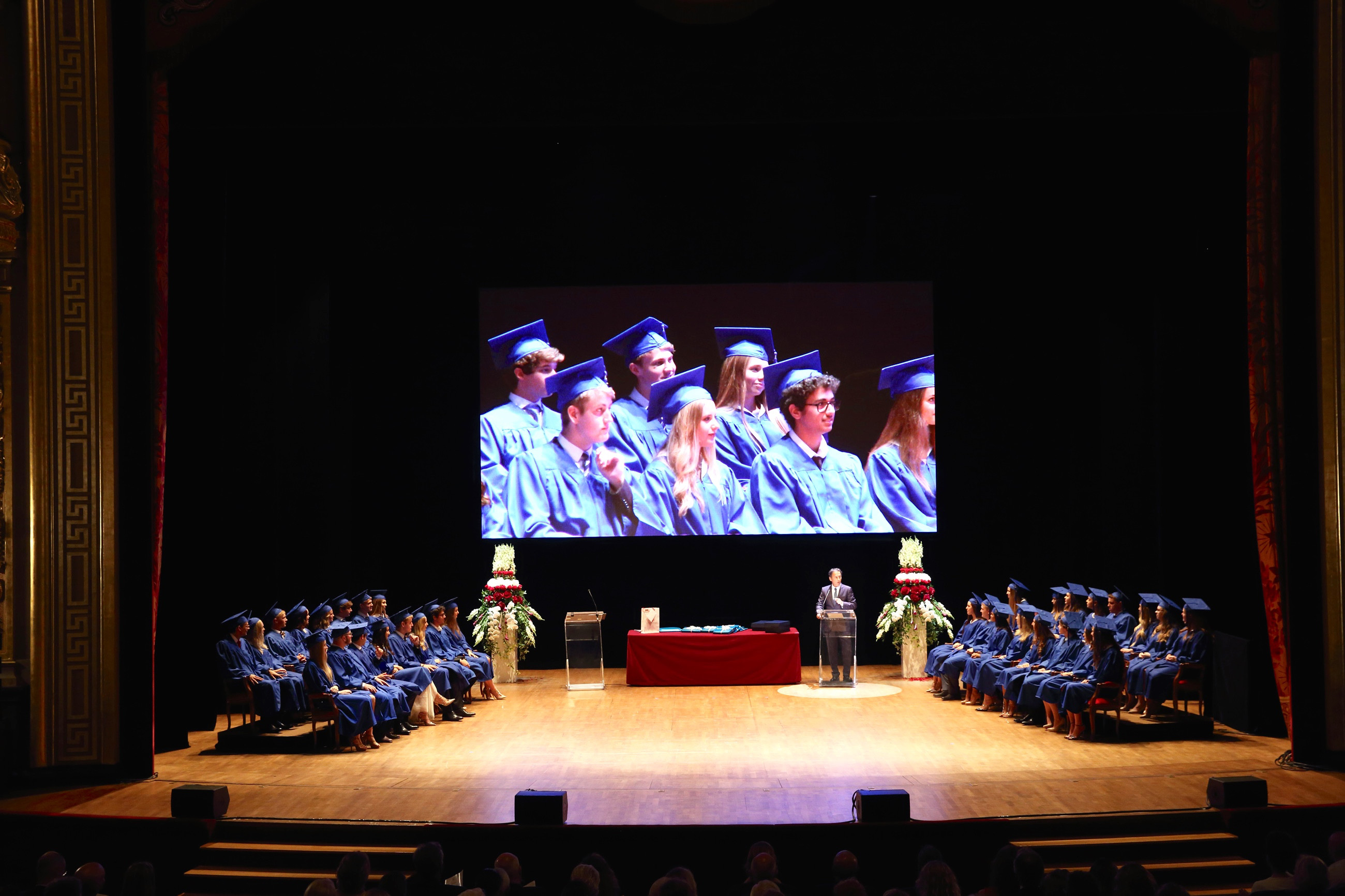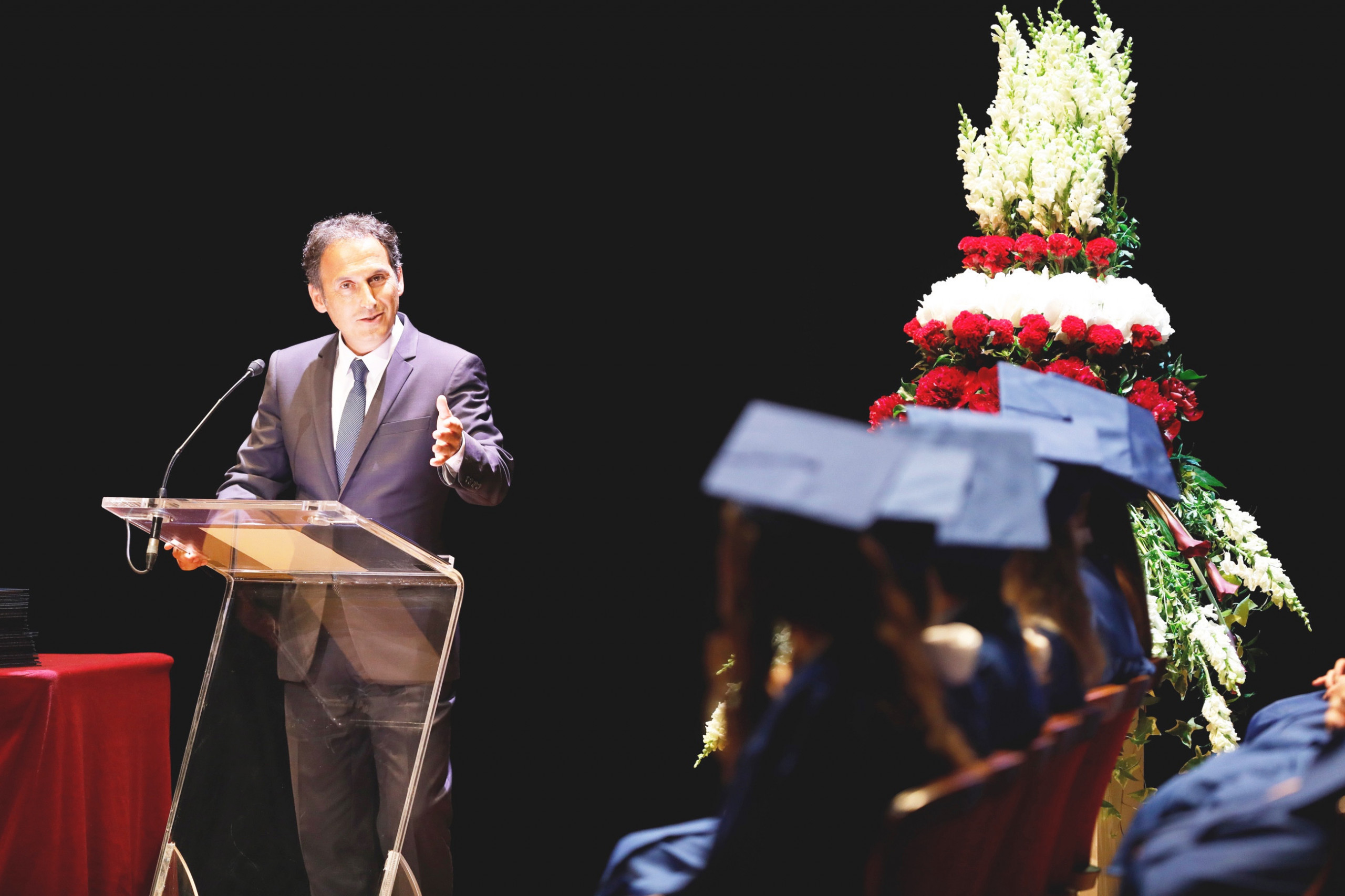
In September 1994, the International School of Monaco (ISM) opened its doors at 12 Quai Antoine 1er with 34 students. Today, occupying three premises along the Quai, including the former Monaco Yacht Club which houses Early Years children, enrolment stands at 640.
The “internationally-minded institution” published its 2017 IB Diploma (baccalaureate) results, with a 100 percent pass rate, and an average score of 34 points overall (the world average for IB schools is 29 points).
At the June 13 graduation ceremony, attended by Andrea Casiraghi, representing the Princely Family, Constance Paefgen, Caitlin Nathan-Maister and Anna Nikitina were awarded prizes for Outstanding Academic Achievement, and also achieved the highest grades. Constance and Caitlin Nathan-Maister shared top marks of 41 points.
Monaco Life profiled Constance earlier this year as she is the first ISM student to attend an Yale. Caitlin will read archaeology at University College London, along with Anna, who will study law at the same institution.
This year was a special year for ISM as it marks the fifteenth group of graduating students. Since the first nine students of the Class of 2003, 295 students have successfully obtained their IB Diplomas at ISM, with studies as diverse as economics, law, business and management, archaeology, dentistry, space and concept design, professional dance and theatre as universities including CASS Business School, Queen Mary London, Royal Holloway London, Pepperdine University in California and New York University.

Learning doesn’t only happen in the classroom
Francis Gianni, has been Director of ISM for three years now. Sitting down with Monaco Life, he said, “Learning does not only happen in the classroom. The difference between learning and teaching is that learning is the outcome of teaching. If you don’t pay attention to the outcome of teaching, you can have the best teachers on earth, but you don’t achieve anything.”
Director Gianni has 30 years of experience in education, including 15 years as a university professor and Classe Préparatoire HEC Science-Po and secondary school teacher. He earned the laureate of Agrégation de philosophie, a prestigious qualification for teachers obtained by the most famous national competitive exam in France.
From 1998, he lived in Phoenix Arizona for six years, teaching philosophy at the University of Arizona and then working for STMicroelectronics, a French Italian semiconductor company with 52,000 employees. There he worked providing leadership training, merger and acquisition training and all kind of training for the engineers. “From there, I went back to education and got a Master’s degree in global management, which meant I had experience in teaching but also in business. This was the perfect combination to get into International schools.” He took over an international school in Paris for two years before moving to Lille where he would spend ten years as the head of the Ecole Active Bilingue Jeannine Manuel, which he refers to as “the best bilingual school in France, probably Europe”.
After his wife found a job in Monaco, Mr Gianni applied for a position of Head Master at ISM. How does the school compare? “This environment is like a family. We have a team of 115 staff, including 70 teachers, all committed to the students. We have small classes, around 15 students. The IB Diploma Programme is full of options. But in general at school, we focus on learning, and so we tackle the three elements of learning: skills and knowledge and understanding for the best possible continuous improvement of our students.”
He added that the school is a real international school “not only because of the 52 nationalities, but also because there is a cultural diversity which enriches the partnership between the teachers, students and parents to get the best out of students. This is fantastic and very challenging indeed.”
The balance between academic success and the well-being of the students
The school’s educational goals are an important factor of activeness for the Principality, in terms of its international dimension and cultural diversity. Director Gianni divided ISM’s mission into four parts: first, the partnership he mentioned; second, the academic success. “We would like our students to be academically successful but we are not just a factory to produce results. The results are a joint effort between teachers and students. That is the beauty.”
Third, the school has the willingness to find the balance between academic success and the well-being of the students. “Well-being is achieved through partnership, we listen to the students. We help motivate them, we reassure them when they feel under pressure, and we try to be as flexible as possible. We want our students to become open-minded citizens of the world,” Director Gianni shared.
Four: languages. “Our focus is on learning through a diversity of languages – a minimum of two, but most of our students have three languages, and also on activities that help to broaden the minds of our students.” The early years and primary sections are fully bilingual, one day in English, one day in French, then, in the secondary school, ISM keeps French as a language subject and all the other subjects are taught in English.

The IB: a well-rounded programme with a holistic approach in English
ISM, which follows neither the French or British curriculum, is audited by the IB organisation every 5 years, and also accredited by the world-wide organisation CIS, the Council of International Schools, which every five years inspects on core priorities like child protection and learning.
In the IB programme, there is also the CAS (Creativity, Action and Service element) as part of the program. Students have to dedicate around 160 hours to projects relating to creativity, action or services. They also have to write extended essays, and there is also an element called theory of knowledge to develop critical thinking skills.
Students take the ICGSE, the international equivalent of the British GCSE, and we have the IB diploma, the two last years, which allows us to build up the best curriculum. “Some parents prefer what the international programme has to offer, with the best from Cambridge, from the IB, a well-rounded programme with a holistic approach all in English.”
Mr Gianni added: “As a philosopher and as an educator, I have this objective that our students may be the next protectors of mankind and the planet because they had the chance to have this open-minded education, this is my greatest satisfaction.”
In 2022, ISM will move to Testimonio II and have a capacity for 700 students, sharing the ground floor with a French crèche and flats. For more on ISM, visit ismonaco.org
Article first published July 19, 2017.
